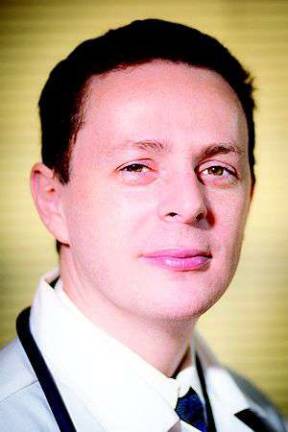House Calls in the 21st Century

By Laura Shin Dr. Alexander Krishtul began visiting his patients in their homes several years ago as a favor. It became so popular that he made it a regular part of his business. Today, house calls are a defining part of his practice and are also his favorite. "I love it," said Krishtul, physician at Krishtul Medical Associates on the Upper East Side. "I get to know the whole family instead of just one person in the office. It's the way medicine used to be." For those who are willing to pay the fee-most insurance companies don't cover house calls-this old-fashioned service is available in New York City from physicians like Krishtul as well as medical practices solely dedicated to house calls. Dr. David Seitz, medical director of House Call MD NY, founded his practice in 2010 with the goal to provide the kind of high-quality care "that can get lost in the impersonal, administratively centered medical office atmosphere." "You spend a lot more time with the doctor, approximately 30 minutes instead of seven," Seitz said. The extra time is not only beneficial for the patients, it is also helpful for the physicians, Seitz said. "We have the leisure of spending time with patients," he said, adding that extra time allows the physicians to offer preventative care advice. "I can actually print diet plans for patients and recommend good recipes, so the care is much more effective." House Call MD NY is available 24 hours a day, seven days a week. It currently has four physicians, but at least one more doctor will be added later this year, Seitz said. The physicians answer house calls mostly in Manhattan. They generally see patients within four hours of receiving the call. The practice treats a wide range of patients, from housebound elderly patients to pediatric patients to celebrities and political figures who do not want to be in the public eye. Seitz said the conditions they treat are also wide-ranging, especially with the help of portable devices. "We can do X-rays and sonograms at home," he said. "We do everything from routine wellness exams to respiratory exams, [treatment of] asthma, sexually transmitted diseases, back pain and muscle pain to suturing of lacerations." The cost of this at-home service is $300 per visit, plus an extra fee for visits that require more than one hour of travel time round-trip. Seitz said his practice is not-for-profit, so it is more affordable. He said though insurance does not cover the visits, it is "somewhat reimbursable" by some policies and Medicare. Krishtul said his home service is a popular option for busy New Yorkers. "For instance, there are adults who may work long hours and come home after 9 p.m.," he said. "Most offices are closed and the only other option is the emergency room. It's usually more convenient for them to call me. I'm there within a half-hour." Krishtul is also available 24 hours a day, seven days a week. A visit from Krishtul costs $240. Any tests that may be performed cost an additional $20 to $40, and any shots given cost $40 to $60. Krishtul said he wants to make sure his rates are compatible to those of his office visits. A large number of Krishtul's house call patients are children. "Just the other night, a mother sent me an email at 10:30 p.m. stating that her 6-year-old had woken up with severe ear pain," he said. "I was there within 15 minutes and he was taken care of." Krishtul said he treats various conditions when making house calls. Some of the most common include bronchitis, strep throat, ear infections and urinary tract infections. Most of Krishtul's patients reside on the Upper East Side, the Upper West Side and Midtown. He said he tries not to take calls outside of Manhattan because of transportation costs, since does not want to raise prices for his patients. Like House Call MD NY, Krishtul does not accept insurance, but patients with out-of-network benefits often receive large reimbursements for house calls, Krishtul said. Krishtul said he believes house calls would be a more common service if they were covered by insurance. They are convenient and strengthen the relationship between doctor and patient. He said he generally spends about a half-hour to an hour with new patients, and approximately 15-40 minutes with existing patients. "The patients don't see it as a routine service. They feel that you've done a lot more, and it's a great feeling," Krishtul said.